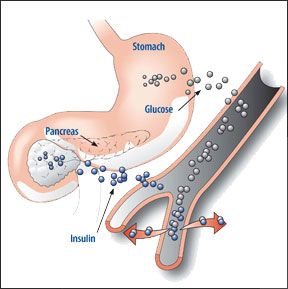Its well documented that diabetes can seriously complicate a heart condition, but research continues to show that elevated glucose levels that arent yet considered diabetes can boost our risk of cardiovascular problems, even if we dont yet have heart disease. An estimated 37 million Americans age 65 and older have diabetes, about a quarter of that population. But an additional 20 to 30 percent of seniors-about 7 to 11 million older adults-are not considered to have diabetes, but do have the form of "pre-diabetes" called impaired glucose tolerance. Unfortunately, its a condition that can be overlooked by physicians because pre-diabetes is seldom accompanied by obvious symptoms. Older adults who have impaired glucose tolerance, but are not yet considered diabetic, have an elevated heart disease risk and may benefit from preventive therapies, according to a study published in the March issue of the Journal of Clinical Endocrinology & Metabolism. Impaired glucose tolerance or impaired fasting glucose refer to a mean blood glucose level that is in the 100-125 mg/dl range. Normal is considered 70-100 mg/dl and diabetes is considered 126 mg/dl or higher, as measured on at least two occasions.
To continue reading this article or issue you must be a paid subscriber.
Sign in






